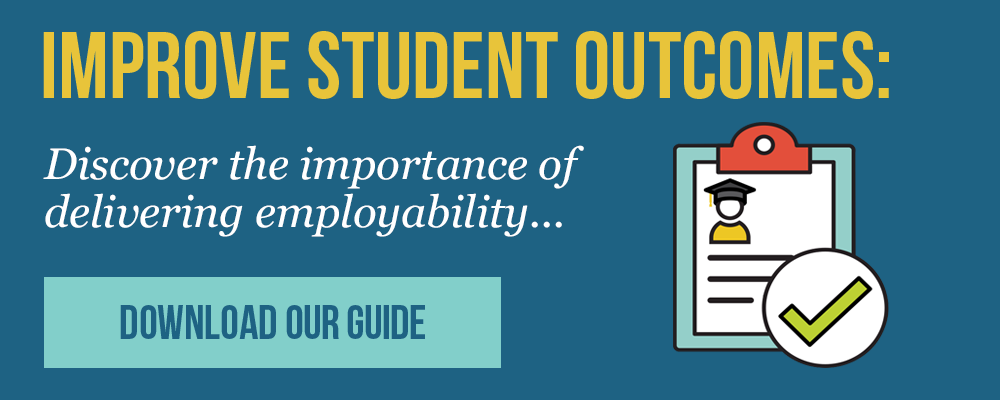
Secondary education has, in some cases, remained virtually unchanged in format for over a hundred years. Buildings might have been rebuilt, classrooms upgraded with technological gadgets and assignments completed on laptops instead of in exercise books, but the traditional method of pedagogy is still very much entrenched across high schools the world over.
School students still associate school with boredom or the stress of needing to achieve, and many feel like what they learn for the first 18 years of their lives provides little preparation for working life. In fact, according to a report by the World Economic Forum, 65% of primary school children will work jobs after secondary school that don’t exist yet, but they’re being educated as if it were still the industrial revolution. What’s the solution to this? A radical reform of education won’t happen overnight and certainly not in time to prepare your current contingent of students for their careers. In this blog article, we explore ways in which you can facilitate preparation for working life.
How progressive is career education at your school?
Inspiring school learners to take an active interest in their careers from a young age involves rethinking how career education is delivered. The aim is to get students excited about their future prospects so that the motivation to prepare and work towards goals comes from themselves, as opposed to coercing students into taking the steps necessary for formulating career plans. This could be done in the form of getting employers in to give talks or workshops or organising events for past students to chat to current students about their careers.
Self-awareness helps students identify how their passions and talents can be applied in the world of work
If you asked your students why they’re at school, there’s a large chance they’d reply “to pass exams”, “because I have to go to school” or “ so that I can go to university”. These are all valid answers, but ones which indicate a possible lack of internal purpose. If young people are to adequately prepare themselves for careers about which they’re passionate, they need to develop the intrinsic purpose that’ll guide them towards goals. Encouraging self-awareness is the first important step towards this. Next, it’s getting them to find that overlap between their skills, talents and passion and how they apply these in the world.
Actively support and monitor students in finding work experience
Work experience has long been encouraged in schools, although the practicalities of choosing and securing placements and internships hasn’t always been the prerogative of teaching staff. As a teacher, you can facilitate interest in gaining work experience in students and actively monitor and support the process of students finding and undertaking work. This might involve sitting down with students on a one-on-one basis to identify potential opportunities and then helping them find work (anything from job shadowing to a part-time job or volunteering). It’s also important to coach students on ways in which they can extract the highest value from their work experience and put this to future use.
Student preparation for working life begins at staff level
Your role as head teacher is instrumental in your students’ preparation for working life. They might be responsible for achieving their goals, but the onus is on you and your teaching staff to spark the interest and enthusiasm required to plan and progress throughout a career. As well as the above mentioned tactics, incorporating structured career planning training alongside core subjects is an effective means of instilling in students the mindset and skills they need to plan for their careers.
Our Industry Engagement Programme (IEP) has been designed by industry leaders with an understanding of both the working world and education. The autodidactic course can be easily completed at a pace that suits each student, regardless of which path they pursue after finishing secondary education. Download our guide for additional strategies you can adopt to prepare your students for life after school.


